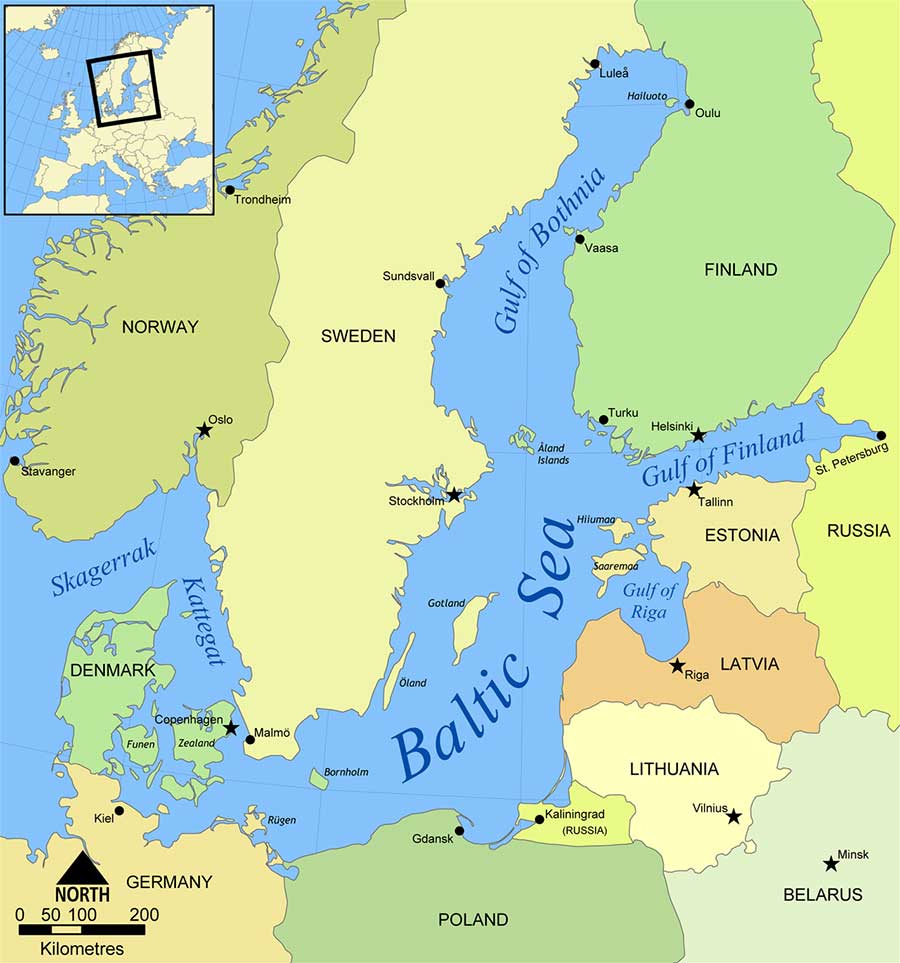First Baltic Direct Belt & Road Train Reaches Poland’s Gdansk Port
Poland’s Gdansk Port has received the inaugural Euro-China Train (ECT), as China’s Belt and Road Initiative realizes a direct link to the Baltic Sea.
The new ECT connection, known as the Baltic Train, is the result of cooperation between the Port of Gdansk Authority, DCT Gdansk container terminal and Adampol, which is the operator and administrator of the route. Adampol reports there is growing interest in the new service which cuts journey times from China to Gdansk from 40-45 days via sea to 10-12 days via rail. It said the Baltic Train will also “turbocharge” delivery times for goods between China, Britain and Scandinavia to 12-14 days via feeder services from Gdansk cutting journey times via the Port of Hamburg to the same destinations by three to five days.
The ECT-Gdansk rail link is managed by Polish transport and logistics company Adampol, which operates a transshipment hub for up to 19-trains-a-day from China at its terminal in Malaszewicze on the Polish-Belarusian border accommodating trains from Xi’an, Chengdu, Chonqging, Hefei, Zhenghzou, Wuhan, Changsha and Harbin. Presently a train from the Adampol Terminal in Malaszewicze on the Poland-Belarus border can take three to five days to reach the Port of Hamburg while to Gdansk it takes between one and two days.
The Port of Gdansk said as well as being in talks with Chinese customers, the partners are also in discussions with British, Scandinavian and Polish companies including car makers and timber producers as well as shipping lines and freight forwarding companies keen to exploit the benefits the new Gdansk Belt and Road rail connection. In addition, the Port of Gdansk’s Shanghai office is promoting the new rail link to in-land terminals in China which previously did not have a direct link to Gdansk and the Polish consumer market of 120 million people. Previously ECT trains with cargo bound for Poland have traveled to directly to Germany and Belgium, with Polish bound cargo then having to be redirected. The new Baltic Train cuts that wasted time with a faster, more efficient service.
The next Baltic Train from China will arrive in Gdansk in mid December with a regular weekly service planned from January next year. The new connection will also be used to transport goods into Belarus, enabling DCT and the Port of Gdansk to be the strategic port for Belarus, and Adampol to be the prime transshipment terminal for Poland and Belarus. Adampol’s intermodal terminal in Malaszewicze is the only one in Poland capable of the storing and transshipment of cars, as a result Adampol; sees huge potential for the automotive sector with this rail link as well as any type of goods suited to container transport. Moreover, Gdansk has extensive feeder links to a wide variety of European and Baltic ports. This provides a real alternative to congested German ports and will be offered in two directions via transport with shipper owned containers (SOC) and carrier owned containers (COC).
The ECT-Baltic Train announcement follows a period of major growth from the Port of Gdansk. In October the port outlined huge expansion plans designed to double its cargo volumes to 100m tonnes a year. This included showcasing investment opportunities in a new €2.8billion Central Port cited as “the biggest maritime investment project in Europe.” The Port of Gdansk grew by 20 percent in 2018 with growth of nine percent 2019. The port is currently on target to exceed 50 million tonnes of cargo for the first time, up from 40 million in 2017.
Proposals for the new Central Port include building 19 kilometers of operational quays, 8.5 kilometers of breakwaters and the building of nine terminals, four turning areas and three approach fairways. The terminals could be used for containers, passengers, offshore operations, LNG operations and shipbuilding.
Related Reading
- China’s Moves Into Europe As Belt & Road Initiative Migrates West
- Finland and Baltics Gear Up Rail and Arctic Infrastructure Projects to Connect With China, Russia, and EU OBOR Trade
- China’s Overseas Free Trade Zones & Industrial Parks
About Us
Silk Road Briefing is written by Dezan Shira & Associates. The firm provides strategic analysis, legal, tax and operational advisory services across Eurasia and has done since 1992. We maintain 28 offices throughout the region and assist foreign governments and MNC’s develop regional strategies in addition to foreign investment advice for investors throughout Asia. Please contact us at asia@dezshira.com or visit us at www.dezshira.com






